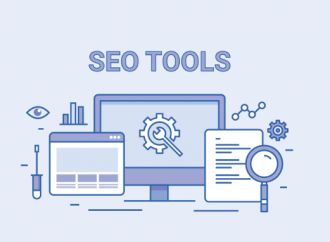One of the most important activities that every business, big or small, should be doing is branding. Essentially, this is the act of shaping the public’s perception of your company by communicating your unique selling proposition. The ultimate goal is to stand out from the competition, thus convincing consumers to make a purchase and/or avail of a service.
Done right, branding can help you grow your customer base, build loyalty, and increase recognition. Therein lies the rub: branding done right. It takes quite a bit of work on your end, including research and actual monetary investment. Still, if you’re successful, you can achieve all the previously mentioned benefits and more.
To help get you started, here are some things you can do to build your brand and start working your way towards growth and profitability:
Establishing Your Identity
Branding relies heavily on your company’s identity. Thus, aside from thinking of a catchy name, you should also invest in a good logo. Work with a graphic design company so you can effectively capture the essence of your business into a unique visual.
While you’re at it, come up with a slogan or tagline as well. This will highlight your company’s purpose and/or promise. It can also boost awareness and recall.
Of course, your logo and tagline are just two elements of your entire company identity. Still, these two are great starting points in creating a unified presence across all platforms. This ultimately leads to stronger associations that put you top-of-mind.
Understanding Your Values as a Business
Again, branding isn’t just about having a logo and a tagline. It’s also about your message and what you stand for as a business. In short, you need to identify and understand your values. This way, you can align all your actions and be more consistent in how you approach your business activities.
Having a deeper understanding of your values can also help guide you in developing your mission and vision statement, as well as in differentiating yourself from other businesses. More importantly, it can anchor you to your purpose. As a result, every action becomes more meaningful and contributes to the achievement of your goals.
Understanding Your Target Market
One important truth that all businesses have to accept is that you can’t appeal to everyone. Thus, your target market can’t be “everybody.” Instead, you need to identify the people you want to serve. This will help you accomplish another more important task: understand what your target market needs and determine how you can fill these needs.
This—identifying and understanding your target market—is especially important for startups. This allows you to develop specialisations and establish yourself as an expert in your industry, opening opportunities for expansion.
Another benefit of understanding your target market is that it helps you align your marketing efforts and ensure that your message is received. If you truly know your audience, then you know when, where, and how to reach them, whether that’s through social media, email, or even direct marketing.
Researching Your Competitors
In business, it’s important to know not just yourself but also your competitors. The goal here is twofold, the first of which is differentiation. By knowing what your competitors are doing, you can better emphasise your unique value proposition.
The other reason is picking their brains. Obviously, you shouldn’t copy their tactics one for one. Instead, use them as inspiration. There are no cookie-cutter solutions in business, but you can definitely study your competitors’ tactics and fine-tune them to suit your situation.
Last but not the least, knowing about your competitors is a good way to educate yourself about the ways and aspects in which they failed. This can help you minimise risks, or even turn those mistakes into your own opportunities.
Sharing Your Knowledge
Being known in your industry as a credible source of information is incredibly helpful in building your brand image. It establishes you as someone who knows what they’re doing, and therefore someone who can deliver the best products and services. This creates a bigger demand, which increases your opportunities for creating other revenue sources.
What’s more, knowledge sharing is actually a good way to further expand your own learnings. This can be done through research and networking, especially when you’re exposed to other business owners’ viewpoints. It can also give you even more business ideas.
Humanising Your Brand
Consumers want a brand that they can relate with, someone that shares their values and ideals. The word to focus on here is “someone.” This simply means that you have to humanise your brand. Transform it into something beyond a product or service.
If you need some examples, just think of brands that stand out the most to you. Most likely, these are those that have touched a part of your self or perhaps evoked a certain emotion. These brands feel real and close to you because they feel human.
Building a brand can be a struggle at the beginning, but it’s definitely worth every effort. Keep these tips in mind if you’re a startup trying to establish yourself in the industry, or even a long-time player who’s looking for a rebrand.



















Leave a Comment
You must be logged in to post a comment.